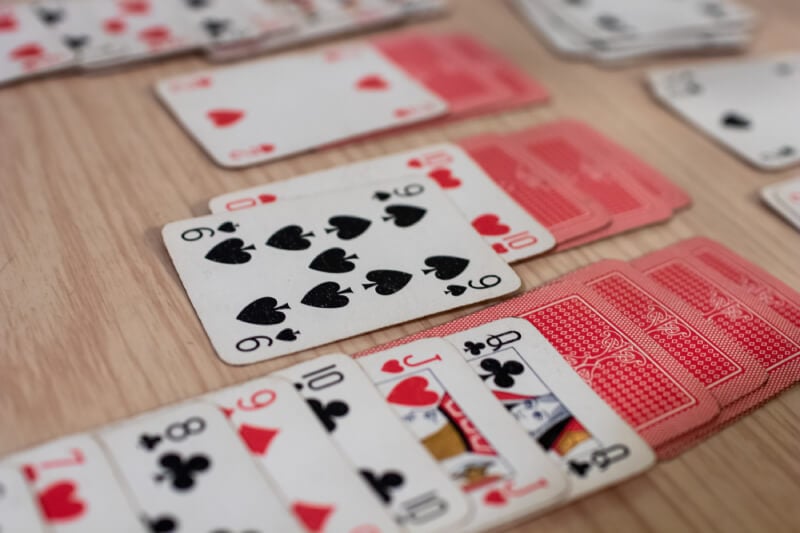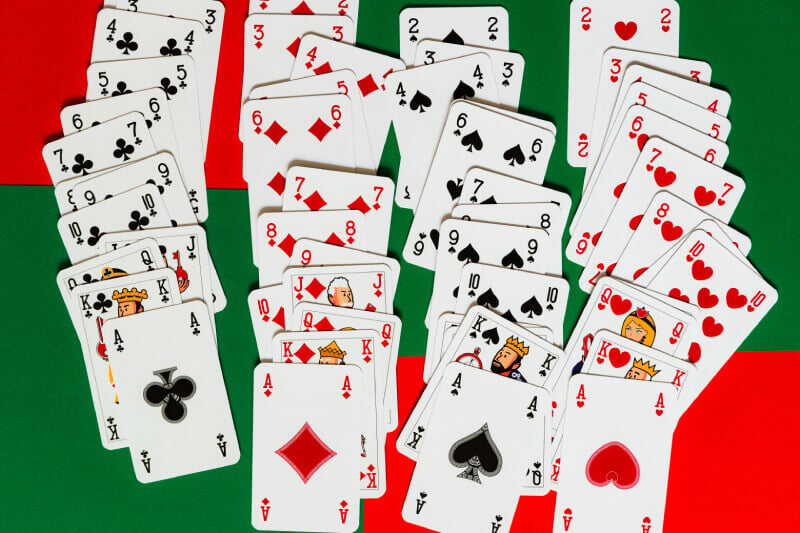Yes, playing solitaire is good for your brain’s health and function. It calms your brain, improves memory, and enhances cognitive health. The benefits of playing solitaire games go beyond mental health and physical wellbeing of your brain.
Here are the top benefits of playing solitaire games for your brain and overall health & well-being:
Playing solitaire can be engaging
As with many card games, you can become engaged and beat boredom when you play solitaire regularly . Extreme procrastination and boredom can significantly harm your mental health and brain function. You need to keep your mind and body active in order to stay in good health. That is precisely what you get from playing solitaire in your free time.

Instead of watching TV or playing violence-filled video games, you can play a solitaire game. The classic solitaire game is designed to keep you busy and engaged for hours on end.
It gives your mind something to be occupied with instead of wandering into the realms of anxiety, boredom, and sadness. By helping you release some steam and escape boredom, the patience game helps keep your brain alert.
It is perfect for “me time.”
If you are an introvert, you probably appreciate some alone time. Thankfully, solitaire is a single-player game primarily built for an individual to enjoy and play. Playing classic solitaire will provide you with some quiet time, so you can reflect on yourself, relax, and make good use of your free time.
Playing solitaire teaches your brain how to make better decisions
Mental skills development is another big benefit of playing games like solitaire. You make numerous decisions at many corners of the game of solitaire. Which King should you move next? Should you draw a card from the reserve pile or play one from the tableau stack? These decisions may seem small, but they train your brain to be better at decision-making and critical thinking.
Playing solitaire helps sharpen your memory and long-term recall
Dealing with dementia, Parkinson’s disease, and other cognitive disorders that affect memory is quickly affecting our older adult population. One of the most significant benefits of playing solitaire for the brain is improving or maintaining a healthy memory.

Memory skills are crucial when playing solitaire, as they help you remember the rules and correct moves. Exercising your memory muscle can improve your overall recall and ability to unconsciously remember the ordering, numbers, suits, and colors of the piles, decks, and foundations.
Playing solitaire calms your mind, which is good for the brain
Anything that soothes the nerves and mind is good for the health and proper functioning of the brain. Lucky for you, playing solitaire allows your mind to drift into a meditative, trance-like state that is incredibly soothing for the brain.
Besides, solitaire is a game of reward with many goals, levels, and achievements to be accomplished.
Whenever you win a game or round of solitaire, your brain will reward you by releasing a dose of dopamine. That special neurotransmitter puts your mind and body into a feel-good mood and state. Increased levels of dopamine are also good for your sleep, digestion, and dealing with mental illnesses.
Playing solitaire can help you deal with depression, anxiety, and mental issues
While some scholars have posited the addictiveness of playing solitaire, the game can help stimulate your brain to produce more happy-feel hormones. That can be helpful when dealing with clinical depression, stress, and anxiety. It can also serve as a healthy way to escape the feelings of hardship, stress, and other problems associated with everyday life.

Solitaire teaches your brain the value of delayed gratification
Instant gratification is not suitable for your brain in the long term. It is what pushes people into addictive habits like alcohol, intoxicating drugs, and gambling.
However, solitaire is a game of many moves and takes a lot of patience to learn and win. As a result, playing or learning solitaire can teach your brain and body the importance of delayed gratification, which can be a good lesson when dealing with emotional, psychological, and mental issues.
Playing solitaire improves your tactical skills
Playing solitaire can help foster and exercise your mental and tactical muscles. For instance, it will teach your brain to focus on a strategy for several minutes, if not hours. While solitaire is not as tactical as mahjong or chess, it is a game of partial strategy and powering through to victory can be quite helpful for your brain in the long haul.
Playing Solitaire brings happiness and excitement to your life
While some solitaire games can be challenging and tough on the brain, they can also be fun and exciting, especially if you have mastered the rules of the game. The game can boost your happiness and excitement, which can be good for your brain, particularly at the end of the day. It is an excellent source of entertainment and fun.

Is Solitaire good for your brain?
Yes, solitaire is good for your brain both in the short and long term. Here’s how:
- Solitaire helps you avoid habits that erode cognitive health, such as binge-watching TV, and social media, staying too long on your phone, and so forth. All these activities can dull your brain while playing solitaire can help you improve your cognitive health.
- Solitaire helps you become engaged and busy. As such, it enables you to get rid of loneliness, blues, and boredom, which can harm your brain and productivity.
- Playing solitaire can be a form of meditation that relaxes and soothes your mind. That is because the card game doesn’t need a lot of brain power or critical thinking
- Solitaire can help you alleviate, cope, or deal with stress, depression, anxiety, and other mental illnesses. Of course, you must also seek professional help as the primary therapy.
- Solitaire helps you build tactical or strategic muscle because it is a highly logical and skill-based game. These exercises can help develop more neurotic networks in your brain.
- Solitaire improves your motor skills, as the game requires thinking one step ahead. It is also good for hand-eye coordination, which can be an excellent way to enhance your motor skills.
- Solitaire enhances your memory due to multiple instances where you have to remember certain moves, sequences, cards, and steps. These recall actions stimulate your nerves, work out brain cells, and enhance your memory. Besides, playing solitaire can help promote increased neural power, and research has revealed that it can boost both long-term recall and short-term memory.
- It makes your brain more alert, especially versions like Spider Solitaire or Mahjong Solitaire. These two solitaire variants are known for improving mental concentration and brain focus.
- Solitaire provides you with some alone time. As a single-player game, you can take advantage of the best tactics and play the game better in a quiet, distraction-free environment. Spending time alone can be good for self-reflection and self-awareness, both of which can enhance your brain health and function.
Is Solitaire considered a brain game?
Yes, Solitaire is considered a brain game. It is a brain teaser that engages a number of brain centers, plus it can have some meditative effects on the brain, just like chess.
